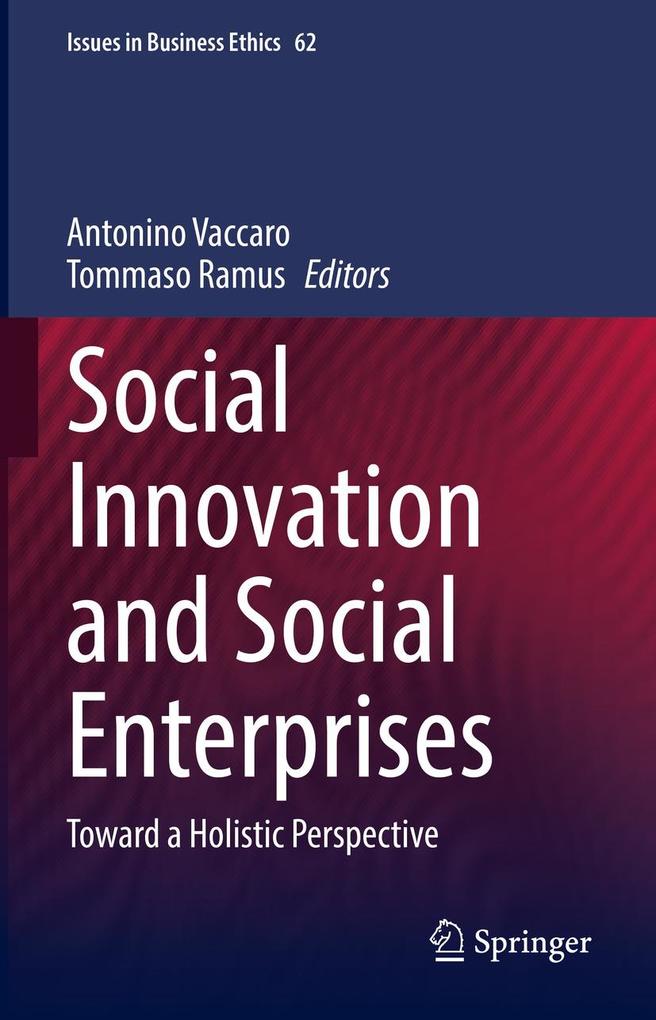
Sofort lieferbar (Download)
This book provides an exhaustive, critical analysis of the challenges and opportunities associated with social enterprises and social innovation. More specifically, it addresses questions such as: What is a social innovation? Which are the best theories that explain how social innovations are generated and propagated in the global society? What is a social enterprise? Which are the theoretical perspectives that best describe the functioning of Social Enterprises , the threats and opportunities? How do social enterprises deal with the profit and non profit worlds and how these interactions affect their capability to be social innovators?The most recent literature has focused on strategies integrating conflicting logic, organizational practices or processes. In all these cases, the hybrid nature of the organization is implemented and sustained through original business models, new organizational arrangements and governance and novel strategies. We believe that the hybrid and institutional perspectives are just one of the many theoretical lenses that can be used to frame social innovation and social enterprises. Along this line, some have highlighted the inherent ethical nature of these phenomena, the critical role played by ethical values whose advancement go well beyond what expected by the corporate social responsibility, business ethics and institutional theorizing.
This book follows these perspectives exploring the link between social innovation and social enterprises, presenting them as a new a new possible field of research that support new ways to understand and theorize individual, organizational and community behaviors.
This book follows these perspectives exploring the link between social innovation and social enterprises, presenting them as a new a new possible field of research that support new ways to understand and theorize individual, organizational and community behaviors.
Inhaltsverzeichnis
Chapter 1. Social Innovation and Social Enterprises: Acknowledging Ethical Roots to Boost Positive Societal Change.- Chapter 2. Organizational Hybridity, Social Enterprise, and Social Innovation: Disentangling Concepts to Advance Theory and Practice.- Chapter 3. How Can Cross-Sector Collaborations Foster Social Innovation? A Review.- Chapter 4. A Behavioral and Cognitive View of Social Innovation.- Chapter 5. Leadership in Social Enterprises: A Paradigm for Purpose-Led Organizations.- Chapter 6. Spirituality and the Social Enterprise: A Paradox Lens.- Chapter 7. A Holistic Perspective on Social Performance in Social Enterprises Disentangling Social Impact From Operational Sustainability.- Chapter 8. The Adoption of Managerialist Practices in Social Enterprises.- Chapter 9. Being for Profit, Non-Profit, or Both? The Risk Advantage of Social Enterprises in the Face of Shocks.- Chapter 10. Scaling Enterprises: A Critique and Opportunity.- Chapter 11. Select Conclusive Thoughts and Perspectives to Guide Further Research.
Produktdetails
Erscheinungsdatum
16. Juni 2022
Sprache
englisch
Auflage
1st ed. 2022
Seitenanzahl
251
Dateigröße
3,98 MB
Reihe
Issues in Business Ethics
Herausgegeben von
Antonino Vaccaro, Tommaso Ramus
Verlag/Hersteller
Kopierschutz
mit Wasserzeichen versehen
Produktart
EBOOK
Dateiformat
PDF
ISBN
9783030965969
Entdecken Sie mehr
Bewertungen
0 Bewertungen
Es wurden noch keine Bewertungen abgegeben. Schreiben Sie die erste Bewertung zu "Social Innovation and Social Enterprises" und helfen Sie damit anderen bei der Kaufentscheidung.









